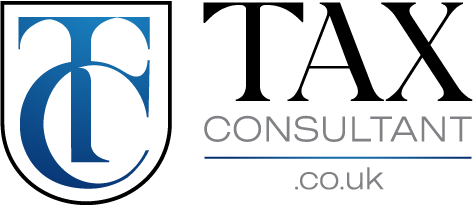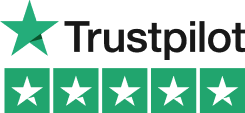VAT Services for
Health Professionals
VAT presents a number of challenges for those working in the healthcare sector. Many assume that all medical services are automatically exempt, but the reality is far more specific. Whether you’re running a private clinic, operating as a locum, or delivering corporate health assessments, it’s crucial to understand where VAT applies—and where it doesn’t.
At Tax Consultant, we provide tailored guidance for those in clinical and allied health roles. We work with consultants, GPs, surgeons, therapists, psychologists, dentists, chiropractors, opticians, and others across the profession. If you need clarity around VAT for health professionals, we’re here to help you identify risks, reduce liability, and improve how your services are billed.

Understanding Exempt and Taxable Medical Services
Under UK VAT law, services directly concerned with the diagnosis, treatment, and prevention of illness provided by registered professionals are usually exempt from VAT. This includes services such as general consultations, mental health therapy, minor surgical procedures, diagnostic investigations, and ongoing care.
The exemption is dependent on both the type of service and the status of the provider. If you’re not personally registered with an approved professional body, or if you provide the service via a limited company where the service is not delivered by the registered individual, that exemption may no longer apply.
Complications arise when services are not related to a patient’s health. For example, medical reports prepared for legal proceedings, occupational health assessments for employers, or services delivered for cosmetic rather than medical reasons typically do not fall under the VAT exempt medical services category. These are likely to be standard-rated unless a different relief applies.
VAT on Private Practice Healthcare
Private medical professionals often deliver services in a mixed setting. For instance, a consultant might spend part of the week in NHS work, while also running a private practice or clinic. In these scenarios, the VAT treatment of income becomes more complex.
Private consultations that involve diagnosis or treatment for a health condition are generally exempt. However, if the same practice offers health screening for employers, medico-legal work, expert witness services, or beauty treatments like Botox, these are considered taxable.
VAT on private practice healthcare depends on the nature of each activity and how it’s invoiced. Getting this wrong may result in an unexpected VAT bill or denial of input VAT claims. That’s why we take time to review service lists, business models, and accounting methods to determine when VAT applies and how to treat mixed-use expenses.

Common Scenarios for Health Professionals
Let’s look at some typical examples that often raise VAT questions:
- A locum GP working through a limited company may be subject to VAT depending on contract terms and whether the service is provided as an individual or as a business entity.
- A psychologist who splits their time between therapeutic counselling and forensic assessments may find one stream exempt and the other taxable.
- A physiotherapist who delivers sessions alongside the sale of exercise equipment or wellness packages will need to assess VAT recovery through partial exemption calculations.
- A dentist offering cosmetic enhancements, whitening, or facial aesthetics must treat some services as standard-rated, even when registered with the GDC.
- An optician selling glasses and contact lenses may need to operate dual VAT schemes to account for both exempt services and taxable products.
These situations illustrate the risks of generalising VAT treatment in healthcare. By analysing your activities in detail, we help you avoid incorrect exemption claims, missed registration obligations, or input tax errors.

VAT Registration and Thresholds
The requirement to register for VAT depends on your taxable turnover—not your total revenue. This distinction is especially important for healthcare professionals whose income is a mix of exempt and taxable supplies.
If most of your services fall under VAT exempt medical services, you may not meet the VAT registration threshold. However, if you also generate income from taxable activities, such as writing reports, training, or cosmetic treatments, those earnings may push you above the limit, even if they represent a small portion of your business.
Registering voluntarily may also offer advantages in some cases. For example, a private clinic that incurs high input VAT on equipment, rent, and marketing may benefit from partial VAT recovery even if most outputs are exempt. We assess these scenarios individually to recommend the most cost-effective path forward.

Structuring Healthcare Services Through a Company
Many professionals now deliver services through limited companies, particularly for insurance, medico-legal, or consultancy work. But structuring matters.
If a company provides services that would be exempt when delivered by a sole trader, exemption may still apply—but only if the work is performed by a person with the correct professional registration. If a company supplies a service but subcontracts the clinical work or lacks the relevant registration, VAT may become due.
HMRC frequently examines such arrangements, especially when directors take income via dividends while claiming exemption from VAT. We support clients in assessing how contracts are drafted, how invoices are issued, and whether the current model leaves them open to risk. Our role is to help you understand and apply VAT rules in a way that reflects your practice accurately.

VAT Recovery and Partial Exemption

Contact Us About VAT for Health Professionals
Getting VAT right in the healthcare sector takes specialist knowledge. With so many variables—including your professional registration, service type, business structure, and client base—there’s no one-size-fits-all answer.
If you’re uncertain about your VAT position, are dealing with a growing private practice, or want to avoid HMRC scrutiny, we can help. At Tax Consultant, we deliver straightforward advice to ensure your compliance and efficiency when it comes to VAT for health professionals.
Reach out today to schedule a consultation and let us review how VAT applies to your services—before it becomes a costly issue.





